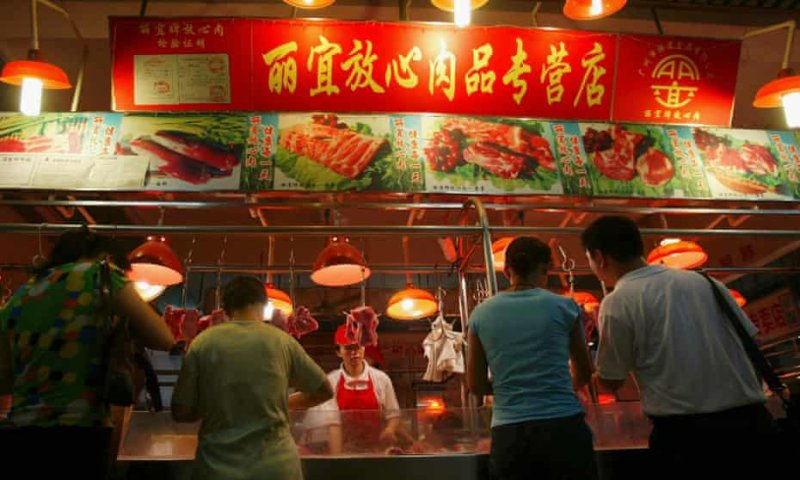Pork is big business in China, the only country in the world to have its own dedicated pork reserve. The government can tap into this reserve as pork prices shoot up or down, as they currently are amid another outbreak of African swine fever.
There is no treatment or vaccine for the disease, and severe price and production problems could persistently plague the Chinese pork industry without more long-term solutions.
…
One unorthodox solution to tackle current and future crises would be to grow meat from real animal cells. This technology, called cultivated meat, would bolster the domestic pork industry and enable China to produce more pork in a way that is resilient to disease outbreaks and environmentally sustainable.
…
To put the current Chinese pork system in perspective, the carbon footprint of slaughtering hundreds of millions of pigs a year – the largest pig herd in the world by far – is equivalent to about a third of the global aviation industry’s emissions from 2018.
A fully developed cultivated pork industry would mean less volatile prices in the market, and as an added benefit it would require less land use and have far fewer greenhouse gas emissions.































